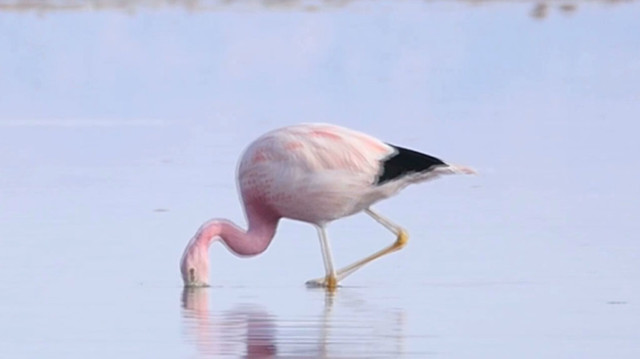One region of South America is known as the Lithium Triangle.
Argentina, Chile and Bolivia, all have large reserves of lithium, and they’re banking on the metal’s growing demand, due to the electric car boom.
But the mining industry also brings environmental concerns. CGTN’s Joel Richards reports.
In Chile, they said when the flamingo stirs up the water and mud for food, it’s dancing the cueca, the traditional dance of this Andean country.
Tens of thousands of flamingos inhabit the Atacama Salt Flat, in the north of Chile. This region is not only a tourist attraction, it’s also one of the largest reserves of lithium in the world, with Chile a major exporter.
Activists and environmentalists are concerned about the effect that mining activity is having on this region.
Lithium mining requires large amounts of water as the metal is extracted in evaporation pools. In San Pedro de Atacama, environmental groups hang black flags in protest at what they said is excessive use of water that’s affecting this fragile ecosystem.
Mining companies were unavailable for comment but said they use water responsibly. Yet, the Chilean national forestry commission has reported a decline in the flamingo population in the region.
There are environmental concerns across the Lithium Triangle, the region of Chile, Bolivia and Argentina, where this metal is found in abundance. Mining operations are increasing in number and in scale as the lithium boom takes off. While scientists work to find solutions, the debate over the effects of mining on this region continues.
 CGTN America
CGTN America

